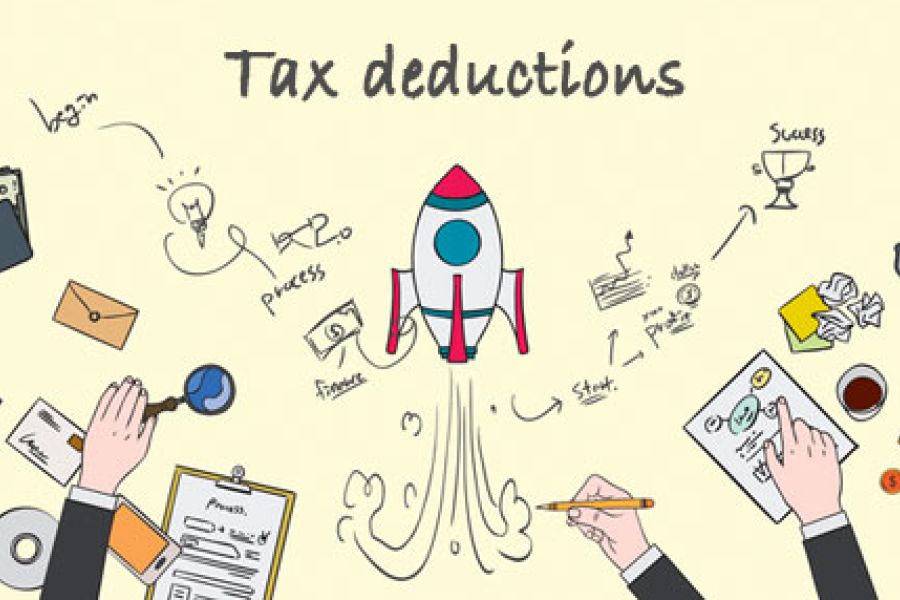Fraud is costly for all victimized companies, but it’s even worse in the construction sector. According to the Association of Certified Fraud Examiners’ Report to the Nations: 2020 Global Study on Occupational Fraud and Abuse, construction companies affected by fraud lose a median $200,000 per fraud incident, compared with $125,000 per incident for all organizations. Some types of fraud are more prevalent in the construction industry, particularly payroll and billing fraud. These can lead to legal liability and fines. For example, paying under-the-table cash wages to avoid paying payroll taxes could result in criminal charges and significant penalties. To prevent your managers and workers from acting illegally or unethically, tighten your internal controls. Essential controls Certain internal controls are essential — including segregation of duties. This means that...

Despite the COVID-19 pandemic, government officials are seeing a large increase in the number of new businesses being launched. From June 2020 through June 2021, the U.S. Census Bureau reports that business applications are up 18.6%. The Bureau measures this by the number of businesses applying for an Employer Identification Number. Entrepreneurs often don’t know that many of the expenses incurred by start-ups can’t be currently deducted. You should be aware that the way you handle some of your initial expenses can make a large difference in your federal tax bill. How to treat expenses for tax purposes If you’re starting or planning to launch a new business, keep these three rules in mind: Start-up costs include those incurred or paid while creating an active trade or business...
Do you have significant investment-related expenses, including the cost of subscriptions to financial services, home office expenses and clerical costs? Under current tax law, these expenses aren’t deductible through 2025 if they’re considered investment expenses for the production of income. But they’re deductible if they’re considered trade or business expenses. For years before 2018, production-of-income expenses were deductible, but they were included in miscellaneous itemized deductions, which were subject to a 2%-of-adjusted-gross-income floor. (These rules are scheduled to return after 2025.) If you do a significant amount of trading, you should know which category your investment expenses fall into, because qualifying for trade or business expense treatment is more advantageous now. In order to deduct your investment-related expenses as business expenses, you must be engaged in a...
There’s a harsh tax penalty that you could be at risk for paying personally if you own or manage a business with employees. It’s called the “Trust Fund Recovery Penalty” and it applies to the Social Security and income taxes required to be withheld by a business from its employees’ wages. Because taxes are considered property of the government, the employer holds them in “trust” on the government’s behalf until they’re paid over. The penalty is also sometimes called the “100% penalty” because the person liable and responsible for the taxes will be penalized 100% of the taxes due. Accordingly, the amounts IRS seeks when the penalty is applied are usually substantial, and IRS is aggressive in enforcing the penalty. Wide-ranging penalty The Trust Fund Recovery Penalty is...
Without trust between you and your employees, your business probably wouldn’t be very successful. Delegating responsibility, sharing ideas, working as a team — all require a certain level of trust. However, too much trust can lead to occupational fraud and conflicts of interest. To maintain the proper balance, establish a policy that outlines your disclosure expectations and require employees to follow it. Purchasing power What constitutes conflict of interest? Let’s look at a fictional example: Veronica is the manager of a manufacturing company’s purchasing department. She’s also part owner of a business that sells supplies to the manufacturer — a fact she hasn’t disclosed to her employer. And, in fact, Veronica has personally profited from her business’s lucrative long-term contract with her employer. What makes this scenario a...
According to the Federal Trade Commission, veterans lost approximately $60 million to fraud in 2020. Active-duty military personnel and their spouses and dependents also suffered big financial losses to fraud last year. In fact, in 2020, military consumers lost more than the general public to fraud — a median $600 compared to $311 for nonmilitary consumers. Here’s what you and military friends and family need to know. Beware of imposters The greatest fraud threat to this group is “imposter” fraud. In this scheme, a criminal calls, emails or texts potential victims and pretends to be working for the Veterans Administration or another government agency. Perpetrators may claim they need personal information, such as Social Security or bank account numbers, to authorize the release of benefits. Instead, they...
Are you eligible to take the deduction for qualified business income (QBI)? Here are 10 facts about this valuable tax break, referred to as the pass-through deduction, QBI deduction or §199A deduction. It’s available to owners of sole proprietorships, single member limited liability companies (LLCs), partnerships and S corporations. It may also be claimed by trusts and estates. The deduction is intended to reduce the tax rate on QBI to a rate that’s closer to the corporate tax rate. It’s taken “below the line.” That means it reduces your taxable income but not your adjusted gross income. But it’s available regardless of whether you itemize deductions or take the standard deduction. The deduction has two components: 20% of QBI from a domestic business operated as...
The IRS just released its audit statistics for the 2020 fiscal year and fewer taxpayers had their returns examined as compared with prior years. But even though a small percentage of returns are being chosen for audit these days, that will be little consolation if yours is one of them. Latest statistics Overall, just 0.5% of individual tax returns were audited in 2020. However, as in the past, those with higher incomes were audited at higher rates. For example, in 2020, 2.2% of taxpayers with adjusted gross incomes (AGIs) of between $1 million and $5 million were audited. Among the richest taxpayers, those with AGIs of $10 million and more, 7% of returns were audited in 2020. These are among the lowest percentages of audits conducted in recent...
Married couples may not be able to save as much as they need for retirement when one spouse doesn’t work outside the home — perhaps so that spouse can take care of children or elderly parents. In general, an IRA contribution is allowed only if a taxpayer earns compensation. However, there’s an exception involving a “spousal” IRA. It allows contributions to be made for nonworking spouses. For 2021, the amount that an eligible married couple can contribute to an IRA for a nonworking spouse is $6,000, which is the same limit that applies for the working spouse. IRA advantages As you may know, IRAs offer two types of advantages for taxpayers who make contributions to them. Contributions of up to $6,000 a year to an IRA may be...
Credit and debit card fraud was already a big problem when COVID-19 hit. Although how much payment card fraud increased in 2020 depends on the source, most experts agree that, like most types of fraud, it flourished during the pandemic. COVID-19-related prevention and treatment scams and increased online shopping likely contributed to this rise. If you become a victim, it’s probably good to hear that the law protects consumers from serious losses. But to reduce financial liability, you need to follow the reporting rules carefully. Unauthorized credit card charges If your credit card is lost or stolen and you report the loss to the card issuer before your card is used in a fraudulent transaction, you can’t be held responsible for any unauthorized charges. If you report it...
- 1
- 2
- 3
- 4
- 5
- 6
- 7
- 8
- 9
- 10
- 11
- 12
- 13
- 14
- 15
- 16
- 17
- 18
- 19
- 20
- 21
- 22
- 23
- 24
- 25
- 26
- 27
- 28
- 29
- 30
- 31
- 32
- 33
- 34
- 35
- 36
- 37
- 38
- 39
- 40
- 41
- 42
- 43
- 44
- 45
- 46
- 47
- 48
- 49
- 50
- 51
- 52
- 53
- 54
- 55
- 56
- 57
- 58
- 59
- 60
- 61
- 62
- 63
- 64
- 65
- 66
- 67
- 68
- 69
- 70
- 71
- 72
- 73
- 74
- 75
- 76
- 77
- 78
- 79
- 80
- 81
- 82
- 83
- 84
- 85
- 86
- 87
- 88
- 89
- 90
- 91
- 92
- 93
- 94
- 95
- 96
- 97
- 98
- 99
- 100
- 101
- 102
- 103
- 104
- 105
- 106
- 107
- 108
- 109
- 110
- 111
- 112
- 113
- 114
- 115
- 116
- 117
- 118
- 119
- 120
- 121
- 122
- 123
- 124
- 125
- 126
- 127
- 128
- 129
- 130
- 131
- 132
- 133
- 134
- 135
- 136
- 137
- 138
- 139
- 140
- 141
- 142
- 143
- 144
- 145
- 146
- 147
- 148
- 149
- 150
- 151











